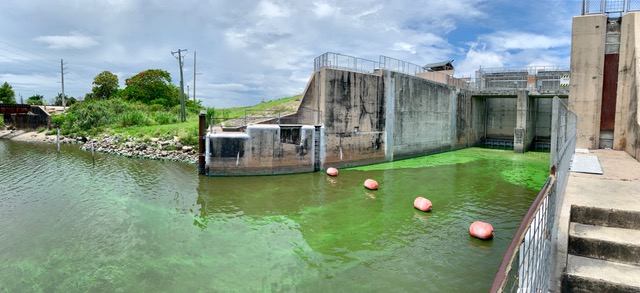Lake Worth Waterkeeper, Partners, Sue in Response to Massive Clean Water Act Rollback
By: Julia Widmann

In case you missed it: Waterkeeper Alliance and eleven U.S. Waterkeeper Organizations, including Lake Worth Waterkeeper, joined last month with several other conservation groups in filing a notice of intent to sue the Environmental Protection Agency and the Army Corps of Engineers over the most recent Clean Water Act rollbacks.
“Most of the waterways that crisscross Palm Beach County between Lake Okeechobee and the Lake Worth Lagoon will lose protection with this rule change, needlessly endangering the environment and public health, and allowing polluters to ruin the foundation of our economy,” said Reinaldo Diaz, Lake Worth Waterkeeper.
The regulation narrows the definition of “waters of the United States” under the Clean Water Act; it repeals long-standing protections for wetlands, streams, and rivers that have been in place since the Nixon administration and that are responsible for major improvements in water quality nationwide. The government has essentially paved the way for polluters to legally pollute, threatening public health and many endangered species.
The rollbacks imperil Lake Worth Lagoon, a northern estuary of the Everglades with many rare and endangered species, already threatened by agricultural pollution and urban runoff including sewage overflows. These rollbacks make Lake Okeechobee, which is suffering from algal blooms and often discharges water into Lake Worth Lagoon, more vulnerable to the same pollutants, compounding the problem.
“In a place like Florida, where water is quite literally the ground we’re standing on, the Clean Water Act is our most important legal tool to fight polluters,” said Diaz. “You’ll have a hard time finding environmental lawsuits that do not make a Clean Water Act claim. And this regulation preemptively prevents a lot of lawsuits from ever starting. It is a rule change that does little more than protect polluters.”
In response to these violations, several groups came together in February to file notice of intent to sue the current administration: the Center for Biological Diversity, Waterkeeper Alliance, Center for Food Safety, Turtle Island Restoration Network, Humboldt Baykeeper, Lake Worth Waterkeeper, Missouri Confluence Waterkeeper, Monterey Coastkeeper—A Program of the Otter Project, Rio Grande Waterkeeper, Sound Rivers (Upper Neuse, Lower Neuse, and Pamlico-Tar Riverkeepers), Russian Riverkeeper, Upper Missouri Waterkeeper, and Snake River Waterkeeper.
The organizations suing to stop the rollback are represented by the Indian and Environmental Law Group.
An analysis by the Environmental Protection Agency (EPA) showed some of the most dramatic impacts of this rollback would be felt in dry, southwestern states like Arizona, New Mexico, and Nevada, which could lose protections for the vast majority of their waters. But no states will be spared; Waterkeepers from across the country explained the impacts to their varied watersheds in a series of blogs last spring.
“This reverses more than 40 years of progress and settled law,” said Kelly Hunter Foster, senior attorney at Waterkeeper Alliance. “Because the rule establishes arbitrary categories of protected waters, EPA and the Army Corps do not have the data necessary to fully identify the waters that will lose protection and they haven’t even assessed the impacts of leaving these waters unprotected where adequate data is available. Their actions are not only reckless—they are illegal.”
Are you seeing misinformation online about this Clean Water Act rule-change? Yadkin Riverkeeper Brian Fannon myth-busts these false statements in a great blog post linked here.
Feature image: Cyanobacteria bloom in one of the canals that can bring Lake Okeechobee water to the Lake Worth Lagoon.